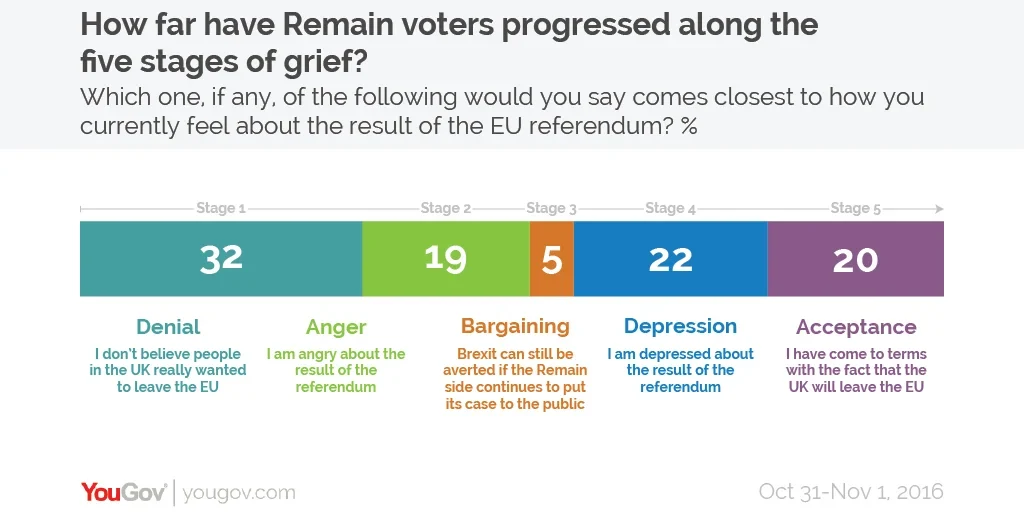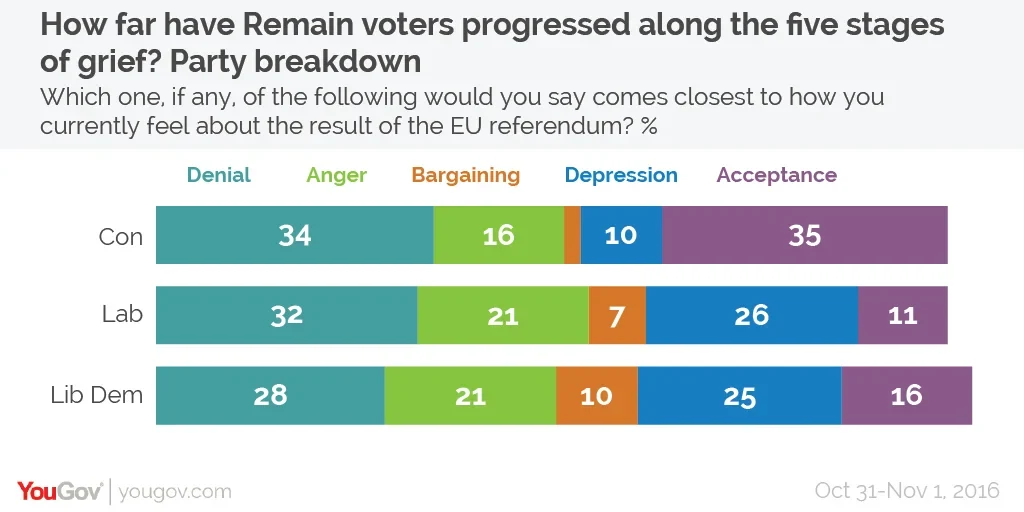Nearly a third of Remain voters still don’t believe people in the UK really want to leave the European Union
The five stages of grief – more properly known as the "Kübler-Ross model" – holds that people going through grief progress through five stages: from denial to anger, to bargaining, to depression, and finally to acceptance.
For a significant proportion of the country, the electorate’s decision to take Britain out of the European Union has been very traumatic indeed. Citing the behaviour of some Leave politicians who have opposed British membership of the European project since 1975, some Remainers have threatened to protest the result for years to come.
Clearly, some people are going to have more trouble progressing through the stages of grief. But how have Remainers coped with the trauma of the referendum result so far?
Now new research from YouGov finds that the highest number of Remain voters are still stuck at the first stage: denial. Nearly a third (32%) of Remain voters say that they don’t believe people in the UK really wanted to leave the EU.

Nearly four and a half months after ballot day, one in five Remain voters have managed to reach the final stage or grief – acceptance – saying they have come to terms with the fact that the UK will leave the EU.
Similar numbers are stuck along the scale at the second stage (anger, 19%) and the fourth stage (depression, 22%). Far fewer people are at the bargaining stage (5%) where they believe that their behaviour can overturn the referendum result.
Different social groups are progressing down the scale at different rates, however. For instance, Conservative Remain voters are far more likely to have reached acceptance and come to terms with the result, whilst Labour and Lib Dem Remain voters are more likely to be in the depression phase.

Inhabitants of London, one of the three regions where the majority of voters wanted to Remain, are by far the least likely to have come to accept the result of the referendum at just 7%. Instead, they are much more likely to be stuck at the anger (27%) and depression (32%) stages than people in other regions.
Photo: PA








